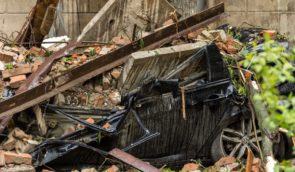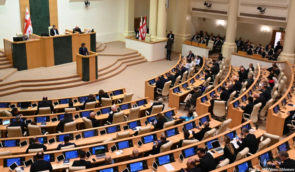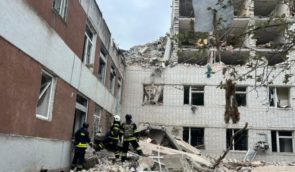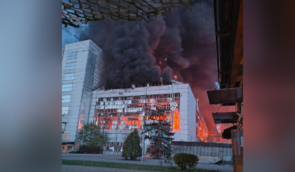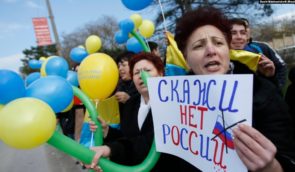Crimea Labeled as Worst of the Worst on Freedom of Speech
In the Freedom House report “Freedom of the Press 2015: Harsh Laws and Violence Drive Global Decline,” Crimea received 94 points out of a possible 100 (with 100 being the worst), and entered the list of the Worst of the Worst countries and territories when measuring freedom of speech. Syria and Iran have 90 points each, Russia is rated at 83.
According to the report, the world’s 10 worst-rated countries and territories, with scores of between 90 and 100 points, were Belarus, Crimea, Cuba, Equatorial Guinea, Eritrea, Iran, North Korea, Syria, Turkmenistan, and Uzbekistan. Crimea—analyzed separately for the first time in the current edition—and Syria joined the bottom-ranked cohort in 2014. In these settings, independent media are either nonexistent or barely able to operate, the press acts as a mouthpiece for the regime, citizens’ access to unbiased information is severely limited, and dissent is crushed through imprisonment, torture, and other forms of repression. Crimea became subject to Russian press laws after its occupation and annexation in early 2014, and its media faced restrictive regulations and widespread violence.
The most dramatic change in the Eurasian region occurred in Ukraine, which moved from Not Free to Partly Free (decreasing from 63 to 58). The fall of President Viktor Yanukovych’s authoritarian government led to decreases in political pressure on state media and hostility toward independent voices. However, these gains were partly offset by the effects of the conflict in the country’s eastern regions, which created extensive dangers and obstacles for journalists. At least five journalists were killed in Ukraine in 2014, including one who died during the Euromaidan protests in Kyiv.
The Russian government tightened its grip on news and information in an already constricted media environment. Authorities used a mixture of legislative changes, economic pressure, and strident propaganda—especially regarding the conflict in Ukraine—to achieve this end, suppressing independent reporting and deploying state-controlled outlets to attack domestic dissent and foreign adversaries.
Under Russian occupation, Crimea’s once-pluralistic media environment was battered by the closure and blocking of Ukrainian outlets and the imposition of restrictive Russian media regulations. There were also numerous incidents of intimidation and violence, contributing to an exodus of journalists from Crimea and perilous conditions for those who stayed.
Earlier, on March 31st the only Crimean Tatar channel, ATR, ceased broadcasting. It did not manage to register as a media outlet under Russian law. The National Television and Radio Broadcasting Council of Ukraine made a request to Ukrainian providers to support the Crimean Tatar channel and ensure its broadcast on cable networks.

